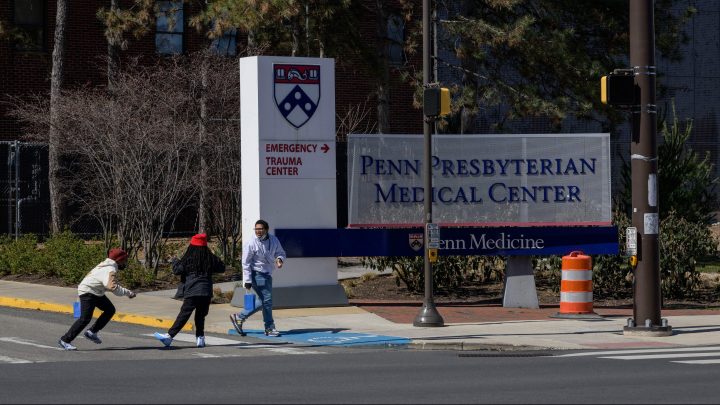
High-ranking hospital system disengages from U.S. News listing
High-ranking hospital system disengages from U.S. News listing

If you walk or drive through the campuses of certain hospitals, you might notice banners promoting how they’re ranked by U.S. News & World Report. The idea is that patients, i.e., customers, pay attention to these rankings when choosing where to get care.
Well, Monday morning, the University of Pennsylvania Health System, home to six hospitals, announced it will no longer actively participate in the U.S. News rankings. The group was often ranked in the top 20, for what it’s worth. But what is it worth?
Kevin Mahoney, CEO of the University of Pennsylvania Health System, said his organization did pay attention to the rankings. Maybe too much.
“It became part of how we were considering the business,” he said.
For example, a hospital in an underserved Philadelphia neighborhood was closing, and the UPHS decided to maintain an emergency room and some inpatient beds there.
“As we’re sitting around the table with my senior leadership team, someone raised the question, ‘What impact will this have on our U.S. News & World Report rankings?’ And I don’t want that to be a factor in us making decisions,” he said.
Mahoney said his health care system was proud of its consistently high rankings, but overall, patients and health care providers need more transparency about what goes into them.
“As an industry, we haven’t done as good a job as we could have — and will — to better explain the differences so that people can make informed decisions,” Mahoney said. “We need to do better.”
In a statement, U.S. News & World Report Executive Chairman and CEO Eric Gertler said its hospital rankings provide an important service to families making decisions about medical care, and they should be just one factor in the process.
It’s a financial factor for some patients.
“It drives patient volume. People pay attention to it, and by driving patient volume, it impacts the reimbursements that [hospitals] can negotiate with private payers,” said Robert Town, who researches competition in health care as an economics professor at the University of Texas at Austin.
Also, if hospitals are higher ranked, it becomes more important for insurers to include those hospitals in their networks, “so that gives them a bit more negotiating leverage with insurers,” he said.
But many patients don’t comparison shop for hospitals.
“As a guess, I’d say that’s maybe 5% of the time, 10% of the time,” said Dr. Vikas Saini, a cardiologist who leads the Lown Institute, a think tank that rates hospitals on how socially responsible they are. Lown sells some of that data to U.S. News.
Saini added that more information should be available to help the public make health care decisions.
“That’s a problem with our health care system. Data is guarded, closely, jealously,” he said.
And rankings aside, Saini said, it’s worth patients taking the time to do their own research.
There’s a lot happening in the world. Through it all, Marketplace is here for you.
You rely on Marketplace to break down the world’s events and tell you how it affects you in a fact-based, approachable way. We rely on your financial support to keep making that possible.
Your donation today powers the independent journalism that you rely on. For just $5/month, you can help sustain Marketplace so we can keep reporting on the things that matter to you.











